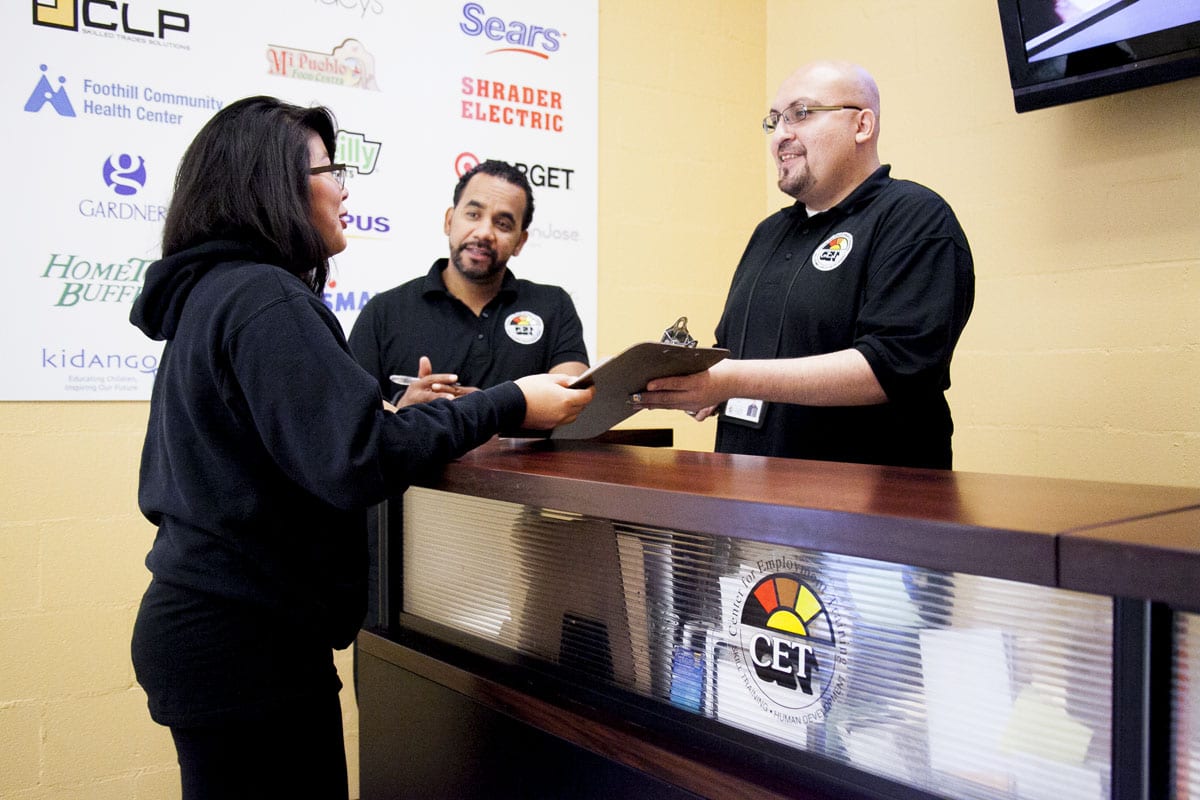What Parents Should Know About Tech and Trade School Programs - CET
In recent years, career and technical education programs have become an increasingly important part of our American education system.
3 min read
 Amy Lawrence
:
Sep 9, 2020 9:00:00 PM
Amy Lawrence
:
Sep 9, 2020 9:00:00 PM

The tides of enrollment in trade schools and universities seem to be shifting. Rates of enrollment in traditional four-year colleges and technical schools both have risen in the past two decades but definitely not at the same pace:
This resurgence is following a decline in vocational education in the 1980s and 1990s, which created a shortage of skilled workers and tradespeople.
Now there are plenty of jobs available for skilled workers across all industries, which are projected to see impressive job growth in years to come. Many students are opting to attend a career school or technical school over a four-year university to train to become experts in their chosen field.
Why are all these students choosing trade school, and why is it a smart choice for your future?
The average Millennial has $30,000 in student loans. For some, this can keep them from purchasing and owning a home or even starting a family.
Also, the average cost for the total price of a four-year degree is $122,000, but for a private, nonprofit four-year university, the cost ends up averaging around $199,500. Compare this to the average cost of technical school—around $33,000 for the entire program—and you end up with a big savings.
Currently, 44 million Americans hold $1.6 trillion in debt. Student loans and unfair, high-interest rates have become a national crisis, with some college graduates feeling like they never will pay off their loans, even with their steep monthly payments.
The cost of college tuition is not what it used to be. Just from 2008 to 2018, the cost of attending a four-year university has gone up by 37 percent, far surpassing the rate of inflation. For many people, these costs just aren’t worth all the debt. Instead, these students are opting to attend career and technical schools to pay less, become certified in their industry and enter the workforce sooner.
At the Center for Employment Training (CET), our goal is to do just that: train you to be employed. Our programs are typically between six and nine months for full-time students so that you can get the education you need for your industry and then get to work.
Because trade school only takes two years to complete instead of four, you have an additional two years of income. If you earn $35,000 annually, this amounts to $70,000. Add in the hypothetical (but not unrealistic) additional costs of around $70,000 for students who take additional time to graduate from college, and those who graduate from a technical school can end up $140,000 ahead at the start, which can amount to as much as 12 years of difference in income right away.
So many high-school students graduate with their eyes on four-year universities, neglecting to realize that many high-paying, skilled technical industries are struggling to fill jobs and can’t ever seem to hire enough people to meet demands.
Across the nation, 70 percent of construction companies are having trouble finding qualified workers, and this is the same for all kinds of skilled trade professions like electric work, plumbing and healthcare. Carpentry, healthcare and personal care alone are estimated to account for over 30 percent of job growth between 2018 and 2022.
Many of these in-demand jobs aren’t just actively hiring—they also happen to pay well above state and national average incomes. Here’s an example of a 20-year-old ironworker who is making over $50,000 annually with a pension and other benefits, which tends to be the rule, not the exception, when it comes to income for skilled tradespeople. His friends are still in college accruing student loans, and he has learned invaluable skills and entered the workforce in a well-paying career.
At CET, we are committed to providing meaningful training and education to help our students find fulfilling work. We empower our students with marketable skills and services that boost self-sufficiency and work hard to ensure that any student who’s willing to learn doesn’t have a barrier to career-based education.
Attending a career or technical school is a wise investment in your future. From affordable tuition rates that won’t leave you in debt for decades to come to programs in growing industries, CET will help you enter the job market faster so you can make your life your own.
We believe in taking a holistic approach and adapting to each individual student’s needs. We’ll do whatever it takes to get you job-ready and invested in your community, including offering vocation-based language and math classes, GED preparation, job fairs, job retention followup, and even health fairs and voter registration. All of this so you can invest in yourself.
Want to learn more or get enrolled? Contact us today!

In recent years, career and technical education programs have become an increasingly important part of our American education system.

2 min read
When you sit down to plan out your career path, you may come to a point when you’re trying to decide between attending college and going to trade...

Individuals looking for job training so that they can enter a well-paying career may be confused about their options. They may wonder what the...